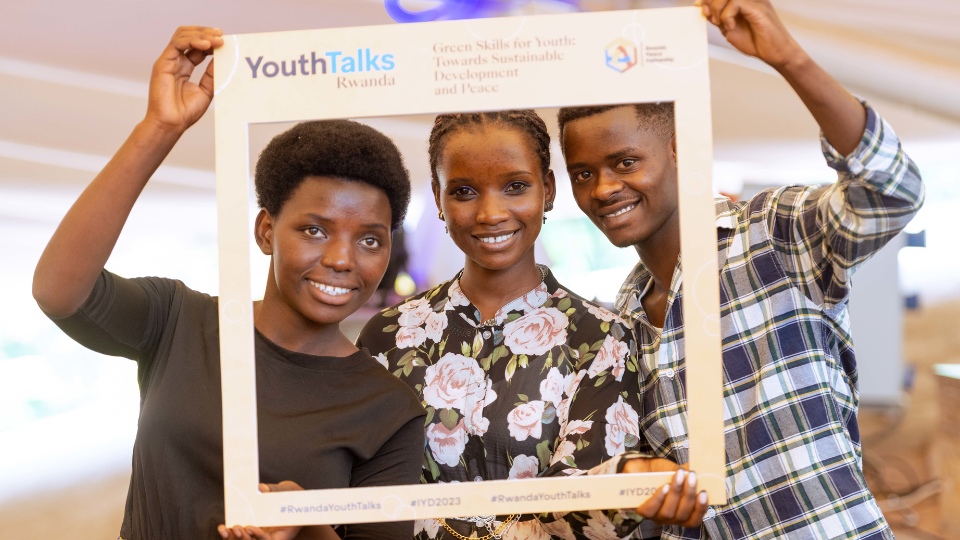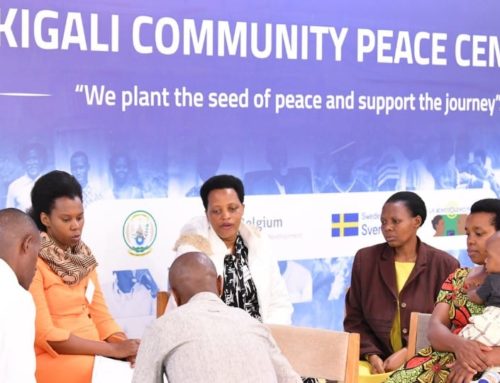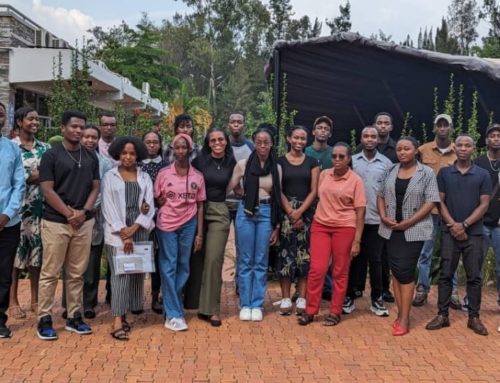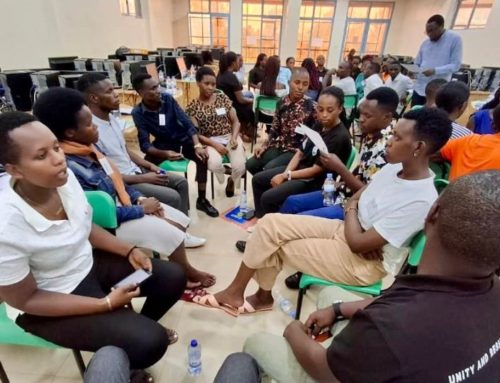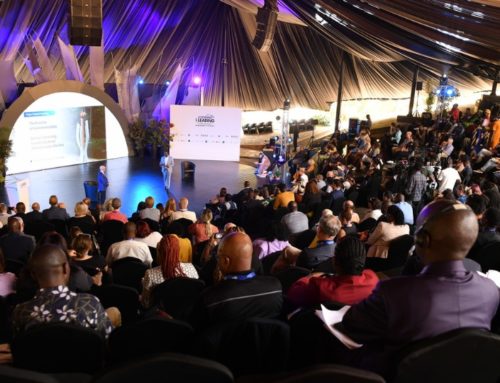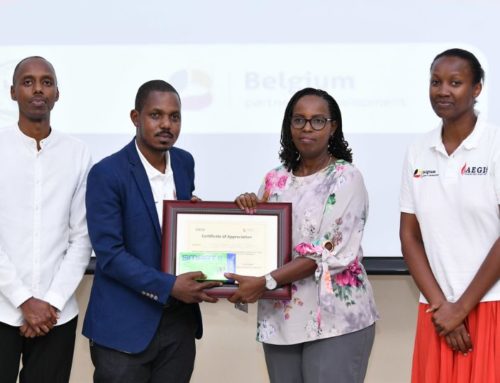On 11th August, the Rwanda Peace Partnership – Aegis Trust, Interpeace and Never Again Rwanda –staged Rwanda Youth Talks at the Kigali Genocide Memorial’s Amphitheatre, addressing this year’s International Youth Day theme ‘Green Skills for Youth: Towards a Sustainable World.’
The 21st edition of Youth Talks for Peace, and the 1st edition of Rwanda Youth Talks, this was a forum to exchange knowledge and skills through stories of young people involved in peace initiatives in the context of sustainable development. For the world to overcome pollution, UN research signposts the need for youth to acquire knowledge, abilities, values and attitudes to develop as well as support a sustainable and resource-efficient society.
The Rwanda Youth Talks event featured an exhibition of different young people’s initiatives, and personal stories from five young speakers relating to green skills. Drawing from their experiences, the speakers shared their understanding and use of green skills in their personal and professional lives to promote climate action, mental health, entrepreneurship, and peace in their communities.
“Rwanda is blessed with a rich tapestry of natural beauty, and it is our duty to safeguard it,” commented Larissa Umulinga, Washington representative of Our Past Initiative, which educates about the 1994 Genocide against the Tutsi. “We must equip ourselves with the knowledge and skills needed to build a sustainable future. Our journey towards lasting peace requires unity and knowledge sharing, and by sharing our experiences, challenges, and successes we create a platform for growth.”
Through storytelling, speakers highlighted the value of nurturing green skills among young people, encouraging their peers to not wait for the change, but to be the change needed for the sustainability of development and peace in Rwanda.
“I grew up in a reconciliation village in a remote area of Bugesera, where survivors and perpetrators of the genocide lived together with hope of one day reconciling,” said Florence Twambazimana, a young entrepreneur from the East of Rwanda. “We did not interact with each other and only met at a well where we all got water from. We were living a life of fear and anxiety.” Approached by Interpeace, Twambazimana received Technical and Vocational Education and Training (TVET). “I started working as a hairdresser with an enemy turned friend who came from the same village as me,” she said. “We are now breadwinners in our family and our friendship has prompted conversations between our families that were once at odds.”
Young entrepreneur Noel Nizeyimana spotted a problem while at university – and then did something about it. “We started noticing inadequate waste management practices in Huye District where our university campus was located,” he said. “We set out to organize waste collectors and establish waste recycling facilities.” With three friends, Nizeyimana established Greencare Rwanda Ltd. They produce 600 tons of compost and 100 tons of recyclables materials annually, employing 25 young men and women. “75% of the waste processed at our facility is biodegradable and it is converted into packaged organic compost known as ‘Grecompost’ using windrow composting techniques,” said Nizeyimana. “I am proud to say that we have successfully transformed waste management practices in Huye city from unregulated disposal to recycling and composting.”
“As young people we have many opportunities to have a positive impact on Rwandan society through different roles,” commented Guest of Honour Thomas Mwesigye, Youth Commissioner at the Ministry of Youth in Rwanda. “It is our duty and responsibility to grasp these opportunities and work towards contributing to peace and growth in our community.” He added, “This initiative gives us an assignment of cultivating green skills in ourselves and finding ways through to a better Rwanda. These Youth Talks should be the first step in creating a culture and values of pursuing a healthy ecosystem through green skills.”
Youth Talks for Peace take place several times a year and are part of the PeaceTalks initiative. Now in its 10th year, the initiative has featured more than 195 speakers from over 50 countries. It aims to promote personal storytelling and encourage practical solutions towards building peace.

